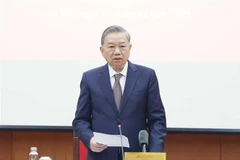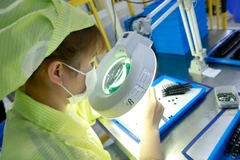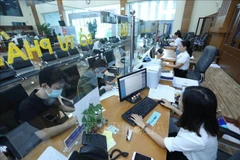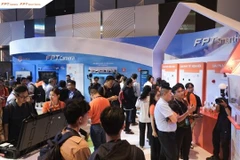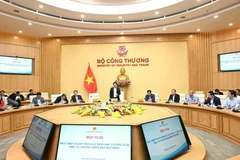Hanoi (VNS/VNA) - Personal computer manufacturers have been rolling out products with AI-integrated chips in the last few years as they stepped up the efforts to get consumers to learn more about AI and their capacity in the domestic market.
Asus, for instance, has provided both online and in-store experiences, adding that they have integrated AI into products to provide users with additional features and functions.
“For example, with the ROG series targeting gamers, AI features have been put to work to enhance user experience,” said a representative from Asus.
The company said it had been working closely alongside partners to find additional real-world applications. Surveys had shown the majority of users, once familiar with AI, could improve their productivity significantly.
He said the main issue in the Asia-Pacific region had been the language barrier, which had prevented many from using voice support functions. Therefore, Asus had been working to improve its AI’s ability to recognise Vietnamese, Cambodian and Burmese, which allows users from these countries to make the most out of Asus AI features.
In a recent development, NVIDIA’s acquisition of VinBrain’s shares, an AI start-up under Vingroup, and its decision to build two research centres in Vietnam has highlighted how NVIDIA is heading in terms of establishing itself here.
NVIDIA’s CEO Jensen Huang said Vietnam could develop, operate and improve AI using its resources. He said the country had a million software engineers, who could be retrained to work with AI, allowing it to become Vietnam’s largest export.
In a recent development, Viettel has announced a 100 million USD investment in a large AI data centre. FPT, meanwhile, has entered a comprehensive strategic partnership with NVIDIA, investing 200 million USD in building an AI factory that will provide cloud computing platforms to support AI research and development in Vietnam.
Potential
According to Nguyen Trung Chinh, Chairman of CMC Corporation, AI is not just a new technology, but a vital resource with the potential to impact all sectors of the economy.
“It has been projected that AI will contribute 15.7 trillion USD to the global economy by 2030 while increasing labour productivity by 40% by 2035,” he said.
Chairman of FPT Group Truong Gia Binh said that it was one of the earliest companies to bet on AI over a decade ago, seeing its vast potential.
“Large international corporations have been doubling their AI investments annually, reaching hundreds of billions of dollars. NVIDIA has become a 3 trillion USD company,” he said.
He said as Vietnam heavily focuses on its digital transformation and technological development, AI would likely play a crucial part in national development in the future.
According to a Google report, given wide-spread and adequate AI adoption, Vietnamese businesses could generate an additional 79.3 billion USD by 2030, the equivalent of around 12% of the Southeast Asian country's entire economy.
AI could be a game changer for Vietnam to improve productivity and speed up its development, according to Marc Woo, Managing Director for Vietnam at Google Asia-Pacific.
In recent years, the government has prioritised the research, application and development of new technologies, particularly AI and semiconductors. Vietnam has issued a national strategy on AI research, development, and applications by 2030, aiming to accelerate these efforts and make AI a vital technological field in the Fourth Industrial Revolution. This strategy contributes to economic and social development while positioning Vietnam as a prominent AI research, development and application hub both regionally and globally./.






